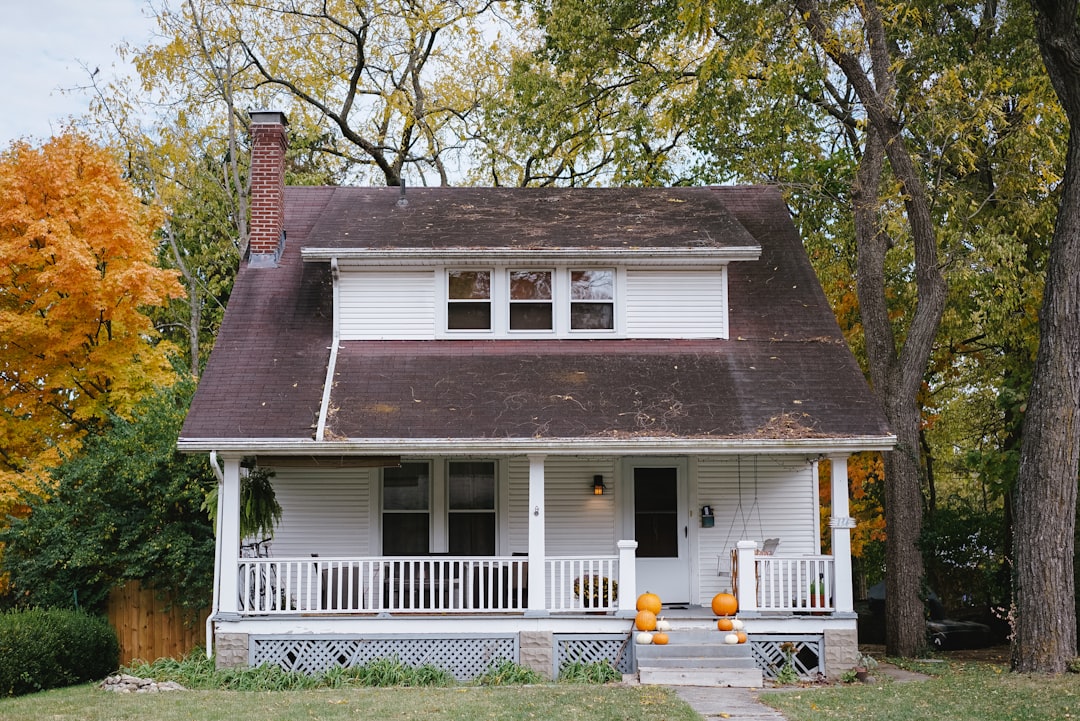
Are you wondering whether it’s even possible to sell your home if you have a Home Equity Line of Credit (HELOC)? It may sound like a daunting task, but the answer is yes! With some strategic planning and foresight, it can absolutely be done.
The process of selling your home with a HELOC isn’t always easy – there are certain steps that need to be taken and paperwork that has to be filed. In this article, we’ll provide all the information you need to make sure everything goes smoothly when selling your property while still being able to pay off the HELOC.
We’ve also included tips on how to maximize profits by preparing for tax season in advance! So don’t worry – read on and get ready for success as we break down what it takes to sell your home with a Home Equity Line of Credit (HELOC).
What is home equity?

Home equity is the difference between how much your home is worth and how much you owe on it. It can be a great source of financial security, as its value usually goes up over time. When your house increases in value, so does the equity you have in it.
Your mortgage payments contribute to increasing your home equity by reducing the amount still owed on your property. If you’re making regular mortgage payments, then more of each payment will go towards paying off the loan principal than interest or other costs associated with owning a home.
This means that as time passes and payments increase, more of each payment will go towards your equity instead of just satisfying interest charges and other fees related to homeownership.
If you’re considering buying a second home or refinancing an existing one, make sure to consider all aspects involved in building up your home’s equity – including but not limited to monthly payments, current market values, lenders’ terms and conditions, overall interest rates and any additional fees that could apply when selling or taking out new loans against it.
What is a HELOC?
A Home Equity Line of Credit (HELOC) is a type of loan that allows homeowners to borrow against the equity in their home. It works much like a credit card, in that you can access funds when you need them and pay back only what you borrow plus interest.
With a HELOC, you typically get access to a large amount of money for up to 10 years. The interest rate on the loan will vary depending on your credit score and current market rates. You’ll be expected to make monthly payments based on how much money you’re accessing from your equity line of credit, as well as any other mortgages or liens against your property.
The amount of equity available for borrowing varies from lender to lender and depends on factors such as the value of your home, the size of your mortgage payments and other liabilities associated with the house. With some lenders, however, it’s possible to access up to 100% of the current estate value if certain conditions are met.
Can you sell a house with a HELOC?

Generally speaking, yes, you can sell a house with a HELOC pending certain conditions.
A HELOC is a type of mortgage that allows you to access the equity in your home and use it as collateral for borrowing money.
When you take out a HELOC, the lender will establish an agreed-upon loan amount, which could be either a fixed amount or portion of the available equity. You might be able to draw on this line of credit for up to 10 years, often with no penalty for paying off earlier than expected.
The key thing to consider when selling your home with a HELOC is that payment from the proceeds needs to cover not just your primary mortgage but also any liens or second mortgages on your property such as the HELOC itself.
The closing costs associated with selling may also need to be taken into account when calculating how much money you’ll have left after repaying all outstanding loans secured by your home’s equity.
Pros and Cons of Selling With a Home Equity Loan

When you’re thinking about selling your home, and you have a HELOC loan, it’s important to consider the pros and cons of doing so. On one hand, having a HELOC loan can provide easy access to money if needed for repairs or improvements while also providing an additional source of income.
But on the other hand, it could limit your ability to sell your home quickly since the lender has a claim against any proceeds from the sale until it is repaid in full.
One advantage of selling with a home equity loan is that mortgage payments will likely be lower due to the lower interest rates associated with these loans. Additionally, homeowners may have more funds available from their home’s sale since they don’t need to pay off as much debt when compared to traditional mortgages with higher interest rates. Furthermore, many lenders are willing to offer flexible repayment terms for those who cannot afford larger monthly payments.
On the downside, there could be hefty fees associated with refinancing or paying off your HELOC early in order to sell your house which would reduce any financial gains made through selling at market value.
Additionally, taking out such large loans might negatively impact your credit score making it difficult for you to obtain future financing or favorable terms on future mortgages/loans should you choose pursue them down the line.
It’s important then that before deciding whether or not selling a house with a HELOC is right for you that you carefully weigh all options including getting assistance from real estate agents and attorneys specialising in this area of law due diligence before making any decisions!
Selling a House With a Home Equity Loan

Selling a house with a home equity loan can be tricky. It’s not impossible, though. When you have a HELOC along with your primary mortgage, it is important to understand the process and consider all of your options before making any decisions regarding selling your home.
When you are ready to sell your home, the amount of proceeds that come from the sale may help cover what is owed on both mortgages. That said, until you know how much money will actually go to paying off both loans, it might be difficult or even impossible to close the deal until then.
If there is not enough equity in your home after both mortgages have been paid off, then there are some other options available such as negotiating with your lender for lower payments or interest rates; converting an unsecured line of credit; taking out a personal loan; or using personal assets to pay off any remaining balance.
It’s also important to consider closing costs when selling a house with a HELOC since this can affect how much money goes towards paying down each loan. Make sure that you understand the terms and conditions associated with each loan so that you can come up with an action plan for making timely payments and completing the sale successfully!
What if you don’t have enough equity to pay off a HELOC?
If you don’t have enough equity to pay off your HELOC when selling the house, you could still consider a few options.
First, try negotiating with your lender. You might be able to get lower monthly payments or reduced interest rates if they are willing to work with you on the terms of repayment.
Second, see if there is any way to convert your loan into an unsecured line of credit. This way, instead of using collateral from the home as security for the loan, you would use other assets like investments or personal property as collateral instead.
You could also take out a personal loan to cover the amount owed on your HELOC and use it as a separate stream of payment for those funds. Or access funds from other financial sources such as money in savings accounts or investments that can be used towards paying off the balance due on a HELOC loan.
Finally, consider making short sales since this option typically requires less cash up front and allows homeowners access to proceeds from their homes‘ sale at closing without having enough equity in order to repay their mortgage loans and liens—the primary requirements for selling real estate currently owned by individuals or families in today’s housing market.
Negotiate with your lender
One of the best options to consider if you don’t have enough equity to pay off a HELOC is to negotiate with your lender. This could be beneficial because it can help lower how much you would need to pay back and possibly extend the repayment period.
For instance, lenders might agree to reduce the amount you owe or reduce the interest rate on your loan so that your monthly payments are more manageable. You could also try asking for a better payment plan if making lump sum payments is not an option for you right now.
It’s important note that this process requires having good credit and income, as well as being able communicate clearly with your lender. If you do have these criteria then negotiating with your lender could be an effective way of paying back what is owed without having enough equity in the home.
Convert to an unsecured line of credit
Another option if you don’t have enough equity to pay off your HELOC is to convert it into an unsecured line of credit. An unsecured loan is one that doesn’t require any sort of collateral, like a home or other asset. This type of loan typically has a lower interest rate than a secured loan, and so it can be more attractive to borrowers who are short on cash but still want access to funds.
Of course, converting your HELOC means making the payments on time each month in order to maintain your good credit score and avoid late fees.
You could also consider refinancing your primary mortgage in order to cover the balance on the HELOC, since this could help you pay off the loan faster since you’ll get lower monthly payments with an improved interest rate.
However, keep in mind that lenders will take into account many factors when determining whether or not they’re willing to finance you for such loans: including income level, current market value of your home and property, amount currently owed on mortgages or other liens against first or second homes as well as any additional closing costs or other expenses associated with selling your home.
Take out a personal loan
Taking out a personal loan could be a great option if you have enough income to cover the monthly payments and your credit score is good enough. Interest rates on personal loans vary depending on your financial situation, so it’s worth researching multiple lenders for the best deal.
Be sure to consider any origination fees or pre-payment penalties that potentially come with taking out a personal loan. Keep in mind, however, that this option is typically more expensive than taking out a HELOC against your home equity.
Since these loans don’t use your property as collateral, you’re not risking it when taking out the loan, but you also aren’t accessing lower interest rates like those of mortgages or HELOCs. A personal loan might be the right choice for you if you need money fast and want to keep ownership of your primary residence without having to worry about mortgage payments or home equity lines of credit obligations while still getting access to funds quickly and efficiently.
Use personal assets to pay off the loan
If you don’t have enough equity to cover the HELOC balance and closing costs, you might consider using personal assets. Depending on your individual financial situation, you could use money from investments, savings accounts, retirement funds such as a 401(k), or other types of liquid assets.
Using these types of finances might be a last resort option for some people since they might result in penalties or fees depending on what kind of asset it is.
It’s also important to note that while this could help with paying off the loan and allowing you to get out of debt faster than scheduled, it will likely also reduce your overall net worth since those funds are no longer available for investing purposes.
Additionally, lenders may require additional collateral if you’re borrowing money to pay off the HELOC. This could mean that in order to access funds through an unsecured loan or by selling off assets like stocks and bonds, they’ll want something in return that they can hold onto until you repay the borrowed amount – typically either an appreciated asset like real estate or cash equivalent such as gold coins.
It’s best to consult with a financial advisor before making any decisions about using personal assets in order to sell your home when there’s a HELOC involved—they can help weigh out all potential options so that whatever decision is made reflects both short-term and long-term goals.
Are There Fees for Selling a House With a Home Equity Loan?
When selling a house with a Home Equity Loan, there are several fees that you will need to consider. Many lenders charge an origination fee for taking out the loan, and some may also charge closing costs. Additionally, you could be subject to prepayment penalties or other charges if you choose to pay off the loan early or make extra payments.
In addition to these upfront costs, it is important to keep in mind that when selling your home with a HELOC, you might not get all of the proceeds from your sale since part of it would be used to pay off the loan balance.
This means that homeowners must carefully weigh their options and consider how much money they need versus what amount they could potentially access through their HELOC before making any decisions about selling their property.
Want to sell your house fast for cash?

If you’re looking for an even faster solution to selling your home with a HELOC, then you might want to consider getting it sold for cash. This is a great option that could give you quick access to funds and can be more effective than other options when it comes to freeing up time.
Plus, if you choose the right estate agent or property investor, they can often cover all of the closing costs associated with the sale. This means that any amount of money left after paying off your HELOC will go straight into your pocket!
However, one thing to keep in mind is that since the transaction is typically done on a short timeline and doesn’t wait around for market conditions or buyers’ mortgages approval process, cash sales can sometimes fetch lower prices than standard real estate transactions.
So make sure to weigh all of your options before deciding how much equity in your house you are willing to forego while considering how quickly you need access to funds from its sale.







